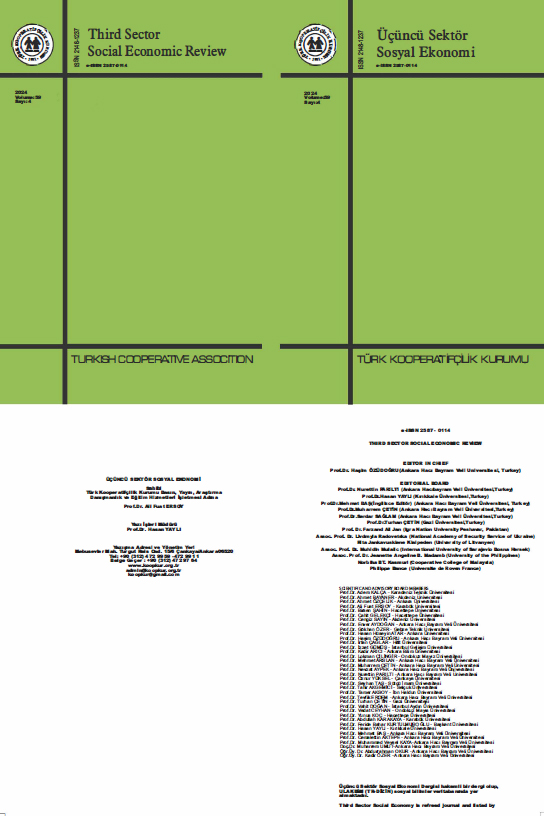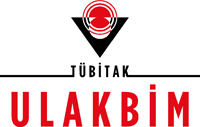Yıl: 2024 Cilt: 59 Sayı: 4 Sayfa: 2473-2490
doi: 10.15659/3.sektor-sosyal-ekonomi.24.11.2443
TÜRK SİGORTA İŞLETMELERİNDE DİJİTALLEŞME VE YAPAY ZEKANIN ÇALIŞAN PERFORMANSINA ETKİSİ
AYHAN ERENER, CEMİL ŞENEL
Dijitalleşme ve yapay zekâ, günümüz iş dünyasında giderek daha önemli hale gelmektedir. Sigorta sektörü gibi risk yönetimi ve finansal hizmetlerin yoğun olduğu alanlarda, bu teknolojilerin potansiyeli büyüktür. Dijitalleşme, işletmelerin faaliyetlerini dijital teknolojiler aracılığıyla dönüştürdüğü bir süreçtir ve yapay zekâ, bilgisayarların insan benzeri zekâ ve öğrenme yetenekleri sergilemesini sağlayan bir teknolojidir. Bu teknolojilerin etkin bir şekilde kullanılabilmesi için, işletmelerin çalışanlarının yapay zekâ ve dijitalleşme konularında bilgi ve yeteneklerini geliştirmesi gerekmektedir. Araştırma, Türkiye genelinde sigorta sektöründe faaliyet gösteren 380 çalışan üzerinde yapılmıştır. Veriler anket tekniği kullanılarak toplanmıştır ve analizler t testi, ANOVA analizi, yapısal eşitlik modeli ve korelasyon analizi ile gerçekleştirilmiştir. Araştırmanın bulgularına göre, çalışanların yapay zekâ algısı üzerinde cinsiyet, medeni durum, eğitim düzeyi, yaş ve sektördeki tecrübeleri gibi demografik özelliklerin etkisi ve yapay zekâ algısının çalışan performansına etkisi incelenmiştir. Elde edilen sonuçlar, sigorta sektöründe dijitalleşme ve yapay zekâ uygulamalarının çalışan performansı üzerinde önemli bir etkiye sahip olduğunu göstermektedir. Bu bulgular, sigorta şirketlerinin dijital dönüşüm süreçlerinde çalışanların bilgi ve yeteneklerini geliştirmelerinin gerekliliğini vurgulamaktadır. Araştırma, sigorta sektöründe dijitalleşme ve yapay zekâ uygulamalarının daha fazla yaygınlaşması ve çalışanların bu teknolojilere uyum sağlaması için önemli bir katkı sağlamaktadır.
Anahtar Kelimeler (Keywords): Dijitalleşme, Yapay zeka, Sigorta sektörü, Çalışan performansı, Teknoloji uyumu
THE IMPACT OF DIGITALIZATION AND ARTIFICIAL INTELLIGENCE ON EMPLOYEE PERFORMANCE IN TURKISH INSURANCE COMPANIES
Digitalization and artificial intelligence are becoming increasingly important in today's business world. In sectors like insurance, which heavily focus on risk management and financial services, the potential of these technologies is significant. Digitalization is the process through which businesses transform their operations using digital technologies, while artificial intelligence enables computers to exhibit human-like intelligence and learning capabilities. To effectively leverage these technologies, businesses need to enhance their employees' knowledge and skills regarding artificial intelligence and digitalization. This research was conducted on 380 employees working in the insurance sector across Turkey. Data were collected using a survey method, and analyses were carried out using t-tests, ANOVA, structural equation modeling, and correlation analysis. The findings of the research examined the impact of demographic characteristics such as gender, marital status, education level, age, and experience in the sector on employees' perceptions of artificial intelligence, as well as the effect of these perceptions on employee performance. The results indicate that digitalization and artificial intelligence applications have a significant impact on employee performance in the insurance sector. These findings underscore the necessity for insurance companies to develop their employees' knowledge and skills as part of their digital transformation processes. The research contributes significantly to the increasing adoption of digitalization and artificial intelligence applications in the insurance sector and helps employees adapt to these technologies.
Anahtar Kelimeler (Keywords): Digitalization, Artificial intelligence, Insurance sector, Employee performance, Technology adaptation
Tam Metin 173











